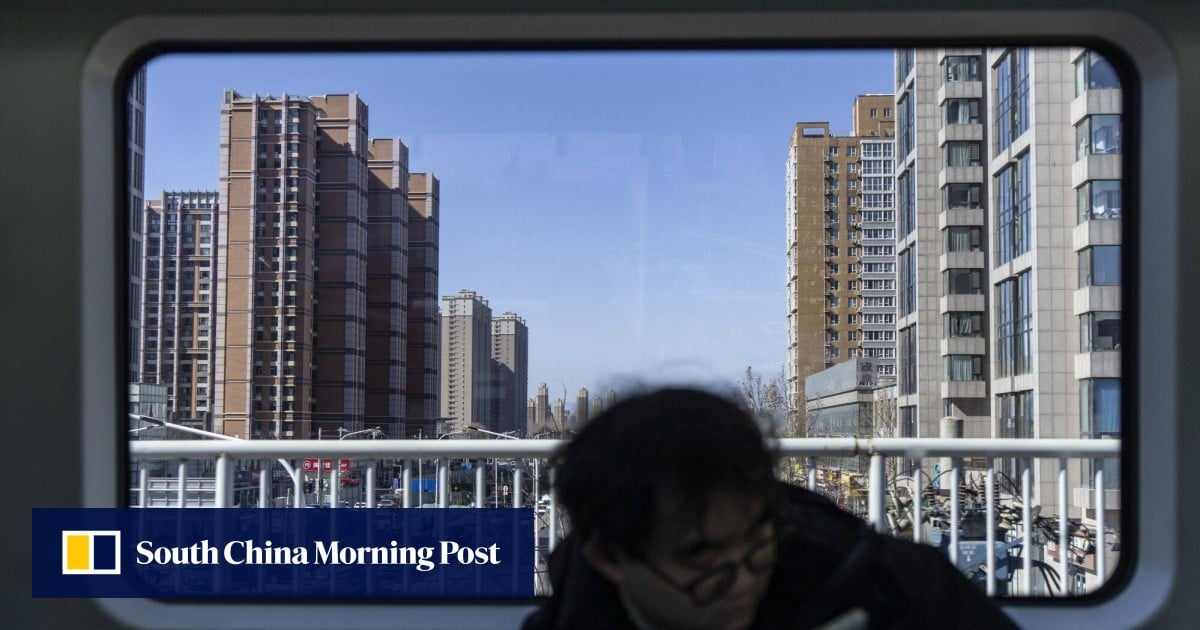Chinese property giant Longfor Group reported a near 50 per cent slump in net profit for last year, while revenue from home sales plunged because of the sluggish housing market.
Net profit came in at 12.85 billion yuan (US$1.8 billion) in 2023, compared with 24.36 billion yuan a year earlier, the company said in a filing to the Hong Kong stock exchange on Friday.
Overall revenue was 180.74 billion yuan, of which investment property operations and services accounted for 24.88 billion yuan, an increase of 5.7 per cent from a year earlier. Revenue from property development, however, decreased 31.3 per cent year on year to 155.86 billion yuan.
“The falling sales over the past two years, plus the decrease in new home prices and earnings, have become a common problem industry-wide,” Zhao Yi, chief financial officer, said at the results briefing.
The lacklustre earnings were due to lower contracted sales, which fell 13.9 per cent to 173.5 billion yuan last year, corresponding to gross floor area sales of about 10.8 million square metres, according to the earnings report.
The slowdown has persisted this year, with Longfor’s contracted sales plunging 55 per cent in the first two months from a year earlier, the Beijing-based developer said last week.
The pace of new home sales recovery is closely related to an improvement in homebuyers’ income expectations, where “pressure in the short-term remains”, said Chen Xuping, chairman and CEO.
The falling profit at Longfor, the ninth-largest Chinese developer by sales, underscores the country’s woes in spurring home sales as buyers’ confidence remains weak despite several rounds of stimulus measures across the nation.
Over the past several months, tier-one cities such as Beijing, Shanghai, Guangzhou and Shenzhen have announced policies to spur home purchases, including a cut to the down-payment ratio.
China’s state-backed developers sharpen profit edge as weak rivals lose buyers
China’s state-backed developers sharpen profit edge as weak rivals lose buyers
Nevertheless, home sales continue to fall. China’s top 100 developers suffered a 60 per cent year-on-year slump in contracted sales to 185.9 billion yuan in February, according to data compiled by China Real Estate Information Corporation.
“The market confidence is not yet fully restored,” Chen said, when asked about the prospects of the real estate sector.
Homebuyers’ confidence has been impacted by defaults at highly leveraged developers, which will take time to recover and the country’s economy has still not recovered to pre-pandemic levels, he added.
Looking ahead, Longfor said it will tailor its sales plan according to the market situation, focusing more than 90 per cent of its projects in tier-one and tier-two cities.
It also plans to open 14 shopping malls this year, adding to the 88 commercial projects it had as of end-2023, as part of its “dual-track strategy” of focusing on asset-heavy and asset-light models.
However, the property market will take longer to turn around, according to Moody’s Analytics.
“Come 2025, real estate will return to a modest rate of growth,” the agency said in a report this month. “But do not expect it to be the growth engine of years gone by, as memories of the past few years will stick with households and developers.”
Longfor declared a final dividend of 0.23 yuan per share, against 0.8 yuan per share last year.


